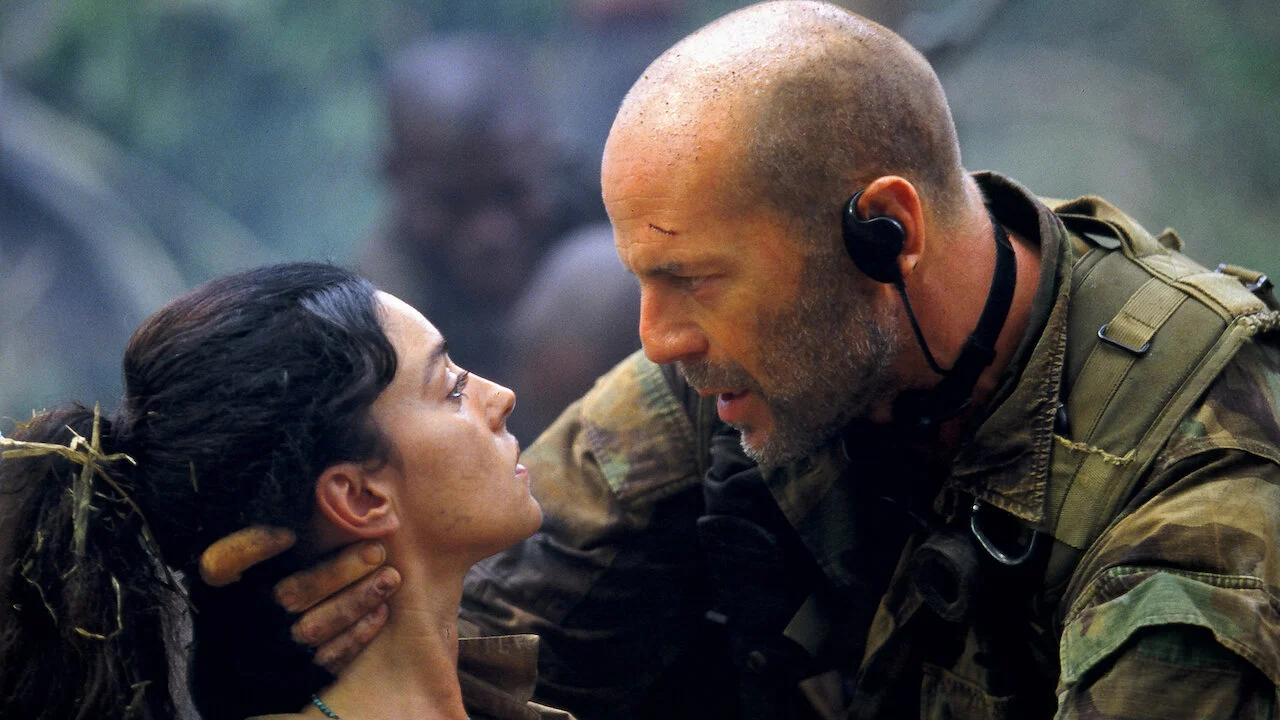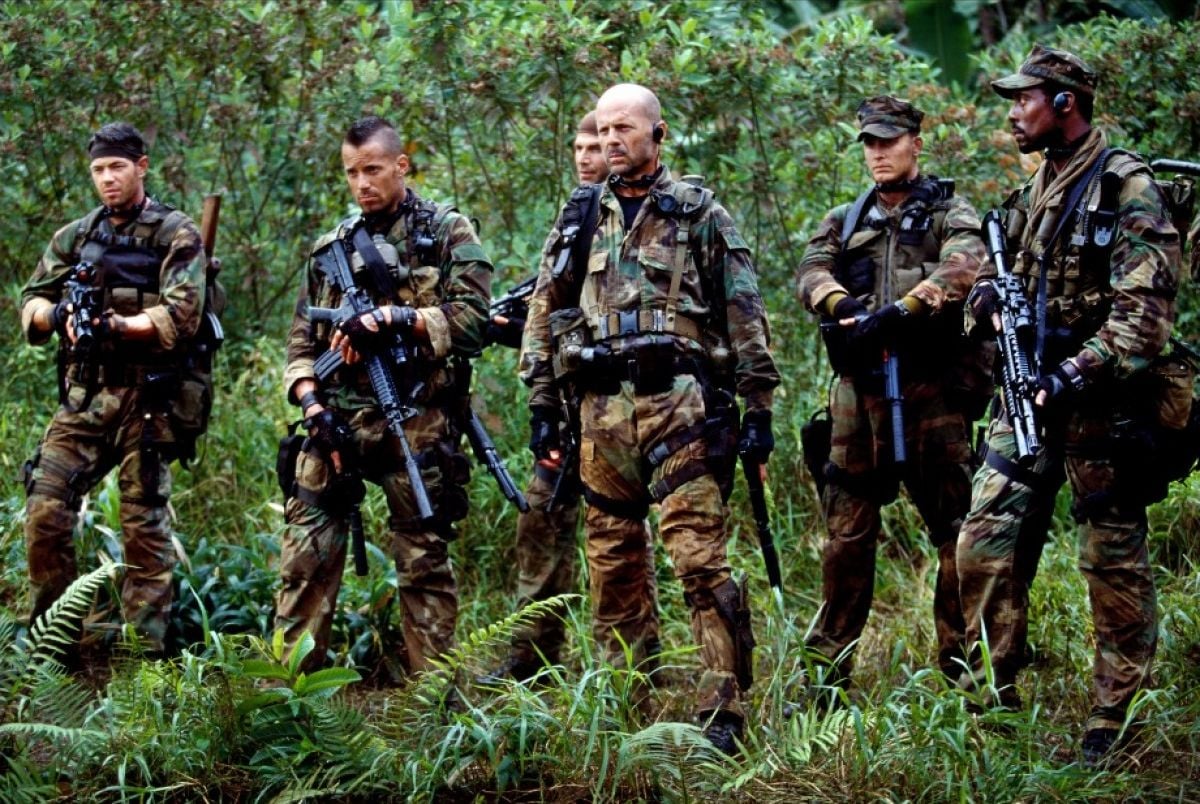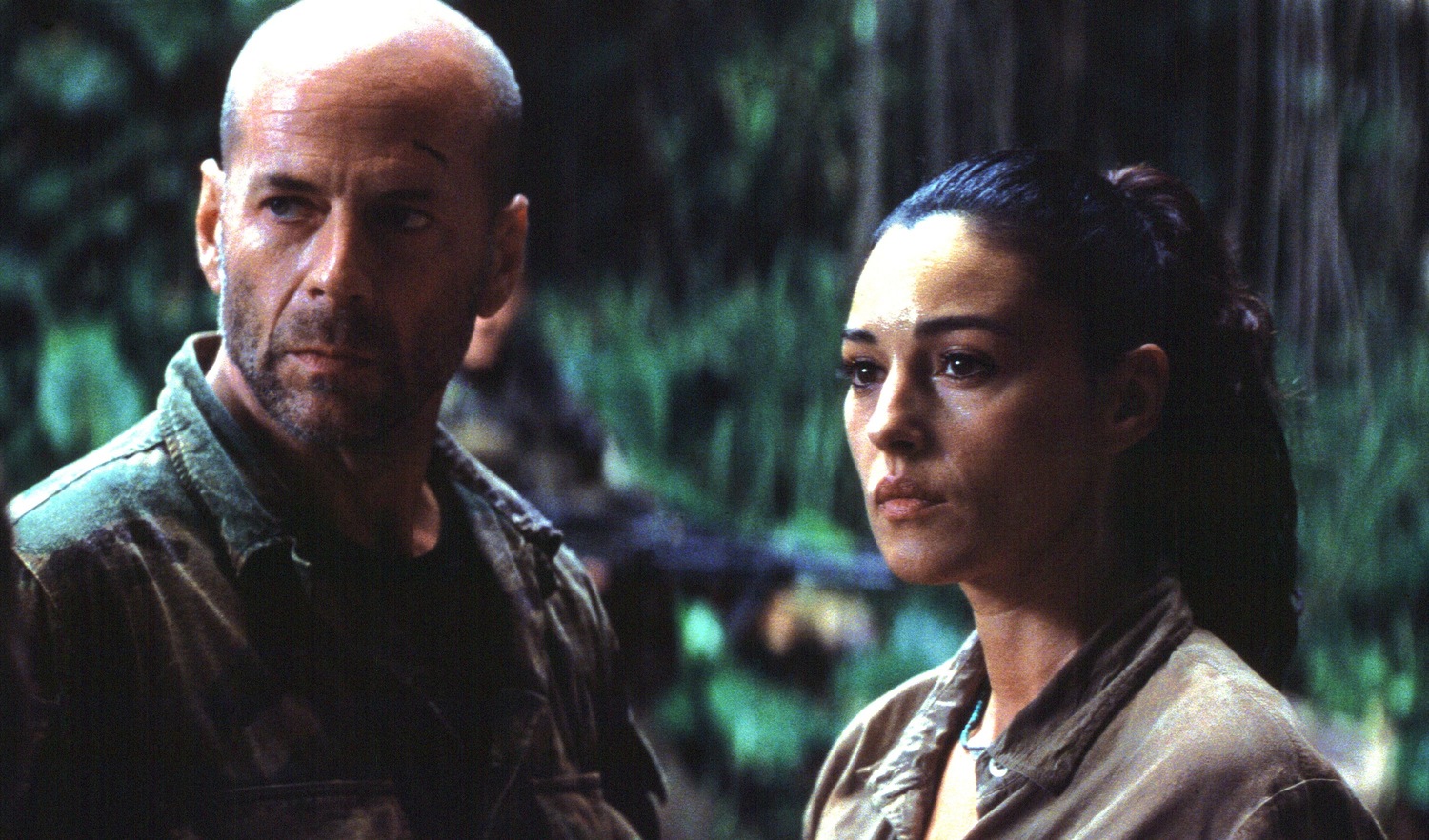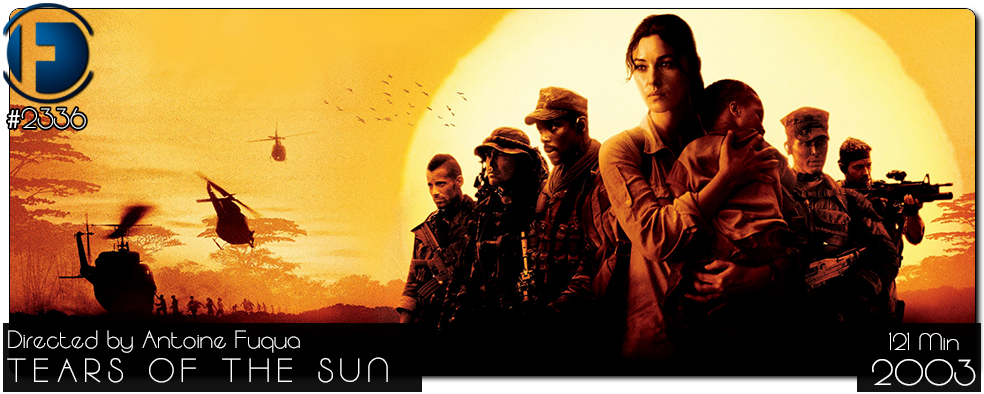Movie Review – Tears Of The Sun
Principal Cast : Bruce Willis, Monica Bellucci, Tom Skerritt, Cole Hauser, Paul Francis, Eamonn Walker, Johnny Messner, Nick Chinlund, Charles Ingram, Chad Smith, Cornelia Hayes, Fionnula Flanagan, Pierrine Mascarino, Peter Mensah, Malick Bowens, Akosua Busia.
Synopsis: A Special-Ops commander leads his team into the Nigerian jungle in order to rescue a doctor who will only join them if they agree to save 70 refugees too.
********
Tears of the Sun, directed by Antoine Fuqua, unfolds against a backdrop of political unrest and humanitarian crisis in Nigeria. Starring Bruce Willis as Lieutenant A.K. Waters, the film attempts to blend action with moral dilemmas as a US Navy SEAL team is tasked with extracting an American doctor from a dangerous war zone. However, despite its earnest intentions, Tears of the Sun falters in its execution, struggling to navigate the complexities of its subject matter while succumbing to clichés and predictable storytelling. In a word, it’s plain boring.

The film centres on Lieutenant A.K. Waters, portrayed with stoic resolve by Bruce Willis, who leads a team of Navy SEALs on a mission to extract an American doctor, played by Monica Bellucci, from war-torn Nigeria. As the mission unfolds, Waters confronts profound ethical quandaries regarding duty, compassion, and the limits of military intervention. Fuqua’s direction attempts to delve into the complexities of these themes, portraying Waters’ internal conflict as he grapples with the moral implications of his orders.

Bruce Willis delivers a committed, if too restrained performance as Waters, conveying the character’s hardened exterior and internal turmoil with eminent conviction. His portrayal captures Waters’ transformation from a by-the-book soldier to a reluctant protector, navigating a delicate balance between military protocol and personal morality. Monica Bellucci brings emotional depth to her role as Dr. Lena Fiore Kendricks, imbuing her character with resilience and compassion amidst the chaos of conflict. However, the film’s ensemble cast, while earnest in their performances, struggles to elevate one-dimensional characterisations, limiting their ability to fully explore the emotional complexities of their roles. Supporting characters, portrayed by actors like Cole Hauser and Tom Skerritt, serve primarily as archetypal figures rather than fully realised individuals, detracting from the film’s potential for nuanced storytelling.

Where Tears of the Sun also falters is in its uneven pacing and lack of sustained action sequences, despite its premise as a military action thriller. Fuqua’s direction occasionally loses momentum, with lengthy periods of exposition and dialogue overshadowing moments of tension and conflict. The film’s attempts to balance introspective character drama with pulse-pounding action sequences often result in a disjointed narrative flow, failing to maintain sustained engagement or adrenaline-fueled excitement. Visually, Tears of the Sun captures the stark beauty and harsh realities of its Nigerian setting through atmospheric cinematography by Mauro Fiore. The lush landscapes and gritty urban environments serve as evocative backdrops for the film’s exploration of war-torn Africa, highlighting the contrast between natural beauty and human suffering. Fuqua’s use of natural lighting and sweeping camera movements enhances the film’s visual impact, underscoring its thematic emphasis on the human cost of conflict.

Tears of the Sun emerges as a film with ambitious thematic aspirations and committed performances, yet struggles to reconcile its narrative ambitions with its execution. Antoine Fuqua’s direction navigates themes of duty, moral dilemma, and the human toll of conflict with earnestness, yet is hindered by uneven pacing and a lack of sustained action. While Bruce Willis and Monica Bellucci deliver strong performances, the film’s supporting cast and narrative structure prevent it from fully realising its potential as a gripping military action thriller. It is a film that offers moments of emotional resonance and thematic depth, yet ultimately falls short of delivering a consistently engaging and cohesive cinematic experience.

